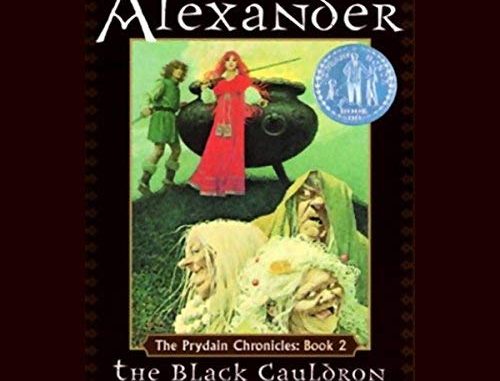
I’ve said before in a previous post that ‘The Chronicles of Prydain’ is my favorite series. I hold to that. I’ve also said that my favorite book in that series is ‘The Black Cauldron.’ I hold to that, too. So it stands to reason that ‘The Black Cauldron’ is my favorite book. I’m trying to convince myself, you see, because picking my favorite book is impossible. But…there is a ‘but,’ there is not a book I like more than ‘The Black Cauldron.’ So, because I’m too chicken to name it my favorite, I’m going to go ahead and say it’s tied for first place amongst others.
Why? Is the question. Well, ‘because it’s awesome,’ is the simple answer.
The more nuanced answer? ‘Knowing sacrifice.’
What is ‘knowing sacrifice?’ I’m not sure as I just thought it up, but here’s what I mean.
A dragon is threatening your village, eating sheep, cows, people. Not a good situation. Someone has to slay it, so you grab a footman’s Dragonlance, like one from Krynn, and head on into his cave. Now, this is a risky venture. Dragons are badass. You’re a piddly little no-one. You know your chances of succeeding let alone surviving are slim. But you do it anyway, putting your life on the line to save your village. You walk in knowing there’s a chance you might die, but also a chance you might live. In short, you have hope.
Now, on the other hand, you have to slay the same dragon, so you grab your Dragonlance and go to your nearest oracle to get a read on how likely your quest is to be successful. The oracle tells you your quest will be successful, you village saved, but only if you die as a consequence. So…you head on into his cave anyway, bereft of hope, knowing you’re certain to die, but that as a result your village will be saved, right?
That’s the thing. The guts it takes to do either are tremendous. But the guts it takes to do the second are more tremendous.
Knowing sacrifice happens three times in ‘The Black Cauldron.” Twice, the price to be paid is a life. Once, the cost is the gaining of wisdom that would set a character up for the rest of his life, make him a hero, a lord, a whatever-the-hell-he-wants to be.
And, as usual, Lloyd Alexander writes these scenes so beautifully it makes me feel pathetic by comparison. The weight of each moment, simultaneously full of tragedy, beauty, and, lastly, redemption is just so great. Sorry, I should have a better word than ‘great.’ But that’s all I can come up with.
Read it and see if you agree.
Leave a Reply